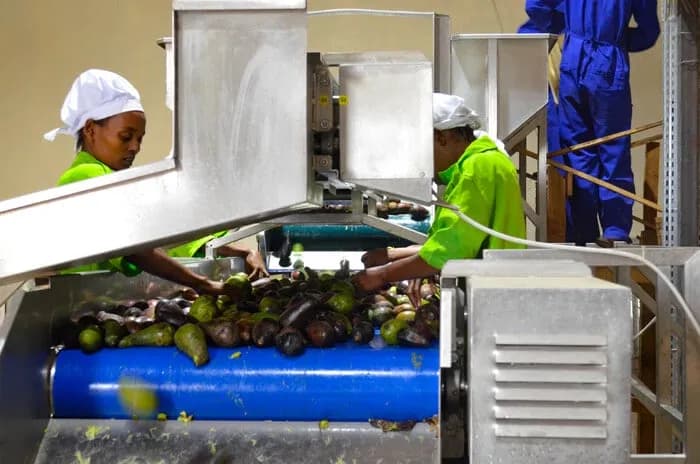Progress for 0 ad
Progress for 1 ad
Progress for 2 ad
Progress for 3 ad


Daniel Metaferiya
Addis Ababa, Ethiopia

An ambitious project by the Ethiopian Bio & Emerging Institute (BETin) looks to kickstart avocado oil production across households nationwide. Following a three-year study, the Institute has kicked off a first-round training program for 50 individuals on affordable oil extraction techniques.
While rarely frequented in Ethiopian cuisine, avocado oil offers a healthy alternative with a high smoke point and mild flavor common in the Mediterranean diet. Despite being introduced by private orchard owners in the late 1930s, Ethiopia now grows nearly 10 varieties of the fruit.
Eyobel Mulugeta (PhD), a senior researcher heading the project, points out three main methods for reliably extracting oil from avocadoes. A hot press, which the Institute selected, a chemical-assisted process, which they avoided due to its environmental impact and a straightforward cold squeeze.
“We chose the mechanical hot press option as it is applicable on a small scale,” the researcher told Shega.
Eyobel hopes to see the training workshops equip the youth with extraction skills for investments starting from 60,000 birr that can then be adopted at the household level. The project relies on Haas avocados sourced from centers of excellence at the Wolaita Sodo University and Sidama Agricultural Office.
Ethiopia produced nearly 245,335 metric tons of avocados in 2022 from nearly 31,000 hectares. Exports of the fruit have also increased by around 11% annually, according to data from the UN Comtrade.
Local demand for avocados has also shot up in recent years despite a persistent lack of supply stemming from cultivation cycles and high prices.
However, BETin’s project looks to source the fruit at an average of 60 birr per kilo to tap into international demand for avocado oil priced at around 4500 birr per liter. Eyobel calculates production costs to be around 2,000 birr per liter, indicating ample space for rewarding profit margins.
“It is a lucrative business accessible to the youth,” he notes.
Eyobel outlines a step-by-step process that involves gathering the avocados, piling them up encased with protective covering, and laying them out for drying. Either a machine or the sun can be used for drying as long as a temperature range between 50 and 60 degree Celsius is maintained, according to the researcher.
With the drying process completed in periods ranging between an hour and four hours, depending on the use of a dryer, the avocados are then slid into a compressor.
“Eight litters of oil from 100 kilos,” Eyobel proudly states.
The Institute has highlighted the energy-rich and long list of nutrients like the antioxidant vitamin E, iron, potassium, and omega-3 as part of the health benefits from avocado oil.
👏
😂
❤️
😲
😠

Daniel Metaferiya
Daniel Metaferiya is a writer, journalist and radio host, with a keen interest in technology. He follows developments in Ethiopia's startup ecosystem closely and is passionate about profiling unique MSMEs.
Your Email Address Will Not Be Published. Required Fields Are Marked *